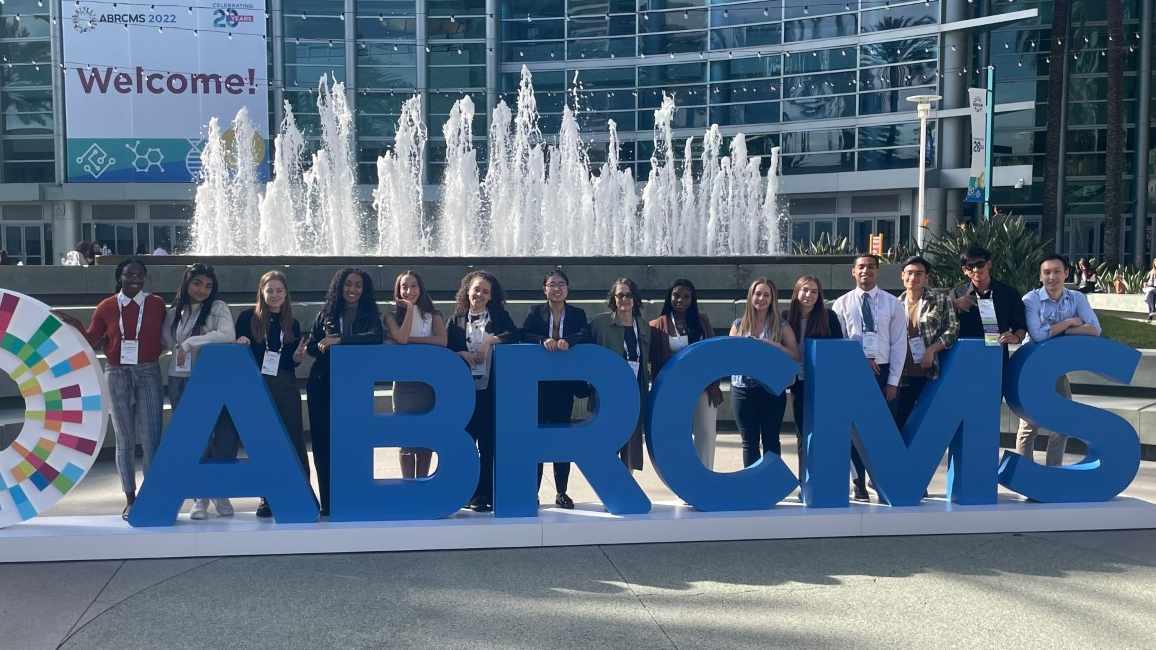MSK Research Highlights, February 23, 2023

New research from Memorial Sloan Kettering Cancer Center (MSK) and the Sloan Kettering Institute — a hub for basic science and translational research at MSK — offers a window into patients’ complex decision-making around adjuvant therapy; explores the promise of engineered CAR T cells; highlights the success of a summer research program to support groups underrepresented in science; provides results from a phase 3 clinical trial against localized renal cell carcinoma; and examines the clinical utility of clonal hematopoiesis for metastatic cancer of the gastrointestinal tract.
Adjuvant therapy study offers window into patients’ complex decision-making and suggests informational videos may help
Anti-PD-1 immunotherapy after surgery is a standard of care for some patients with melanoma to help prevent recurrence. There is no evidence that adjuvant treatment improves overall survival, however, and it is associated with toxicities, some of which are permanent. “This makes the decision of whether or not to opt for adjuvant therapy a complex one. And in talking with patients, it was clear that they often do not understand the full risks and benefits,” says MSK’s Thomas Atkinson, PhD, who led a research project to better understand patients’ decision-making. In a study of 34 patients with stage 3 or stage 4 melanoma, participants were shown a short video that provided information about the risks and benefits of adjuvant treatment, including information that there was no evidence that the therapy improves overall survival compared with treatment at the time of recurrence. Forty-one percent of patients opted for adjuvant therapy and 59% decided against it. Interestingly, patients who opted for adjuvant therapy reported similar quality of life scores and lower regret about their decision than the group that chose observation, even if they experienced toxicities or recurrence. “We believe the findings have important implications for how physicians should discuss this topic with patients,” adds study senior author Paul Chapman, MD. “And informational videos such as these may be helpful in providing patients with information about other complicated topics in oncology.” Read more and find links to the videos in The Oncologist.
Engineered CAR T cells hold promise for improving clinical outcomes
Chimeric antigen receptor (CAR) T cell therapy has proven to be a promising treatment for certain blood cancers, but relapse remains an issue. A new study led by graduate students Megan Dacek and Keifer Kurtz from the lab of the David Scheinberg, MD, PhD, of the Sloan Kettering Institute, found that engineered “Orexi” CAR T cells were more effective than traditional CAR T cells in mouse models and reversed the immunosuppression of myeloid cells in the tumor microenvironment — which may help prevent recurrence. Moreover, combining the modified CAR T cells with an antibody to fight the tumors worked better than either therapy alone in mouse models of lymphoma and leukemia. “Altogether, this strategy represents a novel platform that may improve clinical outcomes in hematopoietic cancers treated with CAR T cells,” the researchers wrote. Read more in Blood.
MSK summer research program is helping to build a new, diverse generation of scientists
A look back at the first decade of MSK’s Summer Clinical Oncology Research Experience (SCORE) program showed 98% of participants persisted in STEMM fields — science, technology, engineering, mathematics, and medicine. Between 2010 and 2019, the eight-week program recruited 116 undergraduate and post-baccalaureate students, with an emphasis on attracting students with limited research experience and those from groups underrepresented in the field. Over the decade, the students performed 130 mentored clinical or laboratory cancer research projects. Among participants, 97% hailed from public colleges, two-thirds were in their freshman or sophomore year, and most identified as female. Additionally, 41% were first-generation college students, 34% were from racial and ethnic groups underrepresented in medicine, and 73% were from immigrant families. After participating in SCORE, most students did further cancer research and published scientific papers — the vast majority of which were in oncology. In a recent article analyzing the program, Laura Liberman, MD and colleagues suggest that an important contributor to SCORE’s success is its creation of a community of practice — a supportive network with ongoing mentoring and connection with peers and mentors that persists long after the program. Read more in the Journal of Cancer Education.

Adjuvant nivolumab plus ipilimumab did not show disease-free survival benefits compared with placebo in patients with localized renal cell carcinoma
CheckMate 914, a multi-center phase 3 trial that included more than 800 patients, evaluated two adjuvant immunotherapy drugs — nivolumab plus ipilimumab — versus a placebo in patients with localized renal cell carcinoma who were at high risk of recurrence after nephrectomy. The trial found the combination did not improve disease-free survival, according to results that were presented at the European Society for Medical Oncology’s annual meeting and recently published in The Lancet. While the two-drug immune checkpoint inhibitor combination has shown benefit for patients with previously untreated advanced kidney cancer, it did not show benefit as an adjuvant therapy to prevent recurrence. “We are continuing to study this combination to figure out whether there may be other ways to offer it,” says study first author MSK medical oncologist Robert Motzer, MD. “We are also focusing on the search for other adjuvant therapies for renal cell carcinoma. The need for additional treatment options for these patients is obviously very great.” MSK urologic surgeon Paul Russo, MD, was also a key contributor and member of the trial steering committee. Read more in The Lancet.
Clonal hematopoiesis has limited utility in clinical decision-making for metastatic cancer of the gastrointestinal tract
Clonal hematopoiesis — mutations in blood-forming stem cells that lead to the production of abnormal cells — increases with age and with toxic exposures, such as smoking or treatment with chemotherapy or radiation therapy. With the growing use of immune checkpoint blockade immunotherapy and given the importance of white blood cells in mounting an immune response against cancer, an MSK team sought to understand whether clonal hematopoiesis had an impact on treatment response in patients with advanced cancer of the gastrointestinal tract. In a study of more than 600 patients with metastatic cancer, the presence of clonal hematopoiesis — including mutations in genes known to drive blood cancers — was not associated with differences in progression-free survival or with clinically relevant changes to white blood cells. According to the study, the findings suggest clonal hematopoiesis was not a major factor in outcomes and has limited utility for clinical decision-making. The study was led by first author Bill Diplas, MD, PhD and senior author Steven Maron, MD, MSc. Read more in JAMA Network Open.